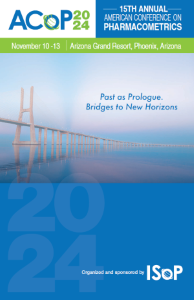Statistics & PMx
(M-055) Immune Correlates of Protection against Respiratory Syncytial Virus Infection and an Application to Model-Informed Vaccine Development for an internal compound: a Model-Based Meta-Analysis
Monday, November 11, 2024
7:00 AM - 5:00 PM MST
Li Qin, Ph.D. – Associate Directer, Certara USA, Inc.; Shinji Shimizu, Ph.D. – Senior Manager, Daiichi Sankyo Co., Ltd.; Paul Diderichsen, Ph.D. – Senior Director, Certara USA, Inc.; Takaaki Oka, BSc – Pharmacometrician, Daiichi Sankyo Co., Ltd.; Masakatsu Kotsuma, Ph.D. – Senior Director, Daiichi Sankyo Co., Ltd.; Kazutaka Yoshihara, Ph.D. – Vice President, Daiichi Sankyo Co., Ltd.
- YK
Yushi Kashihara, PhD
Pharmacometrician
Daiichi Sankyo Co., Ltd., Japan
Author(s)
Disclosure(s):
Yushi Kashihara, Ph.D.: No financial relationships to disclose
Objectives: Respiratory syncytial virus (RSV), a common contagious virus that causes infections of the respiratory tract and can cause more severe disease such as pneumonia in infants and young children as well as older adults. As in other vaccine areas such as COVID-19, establishment of immune correlates of protection against RSV can accelerate vaccine development [1]. The aim of this study was twofold: first, to quantify the relationship between immunomarker and vaccine efficacy by model-based meta-analysis as evidence of immune correlate of protection against RSV, and second, to apply this knowledge in model-informed vaccine development for an internal compound (Compound X).
Methods: We conducted a systematic literature search of PubMed and ClinicalTrials.gov for randomized placebo-controlled registry studies that evaluated RSV vaccines in older adults (≥60 years). Two linear mixed effect meta-regression models were built to describe (1) the relationship between serum neutralizing activity (SNA) and log-transformed vaccine efficacy across three different clinical severity levels, i.e., acute respiratory infection, RSV lower respiratory tract disease (LRTD) with ≥2 clinical symptoms, and RSV LRTD with ≥3 clinical symptoms, and (2) the contribution of cell-mediated immunity (CMI) response to the relationship between SNA and transformed vaccine efficacy. The developed models were applied to predict vaccine efficacy of Compound X using immunogenicity data from a phase 2 dose-finding study.
Results: Seven studies were selected for inclusion in the meta-regression analyses and evaluated to define a quantitative relationship between SNA and vaccine efficacy. SNA correlated with vaccine efficacy across three different clinical severity levels. Five studies reported SNA, CMI, and vaccine efficacy. CMI was found to only affect vaccine efficacy for RSV LRTD with ≥3 clinical symptoms, suggesting that CMI plays an important role for suppressing the severity of RSV infection. The meta-regression model predicted vaccine efficacy for Compound X based on SNA and CMI and was leveraged to support internal decision-making and development strategy.
Conclusions: The meta-regression analysis established a quantitative relationship between immunomarker and vaccine efficacy and suggested immune correlates of protection against RSV infection. The developed literature search, data selection, and analysis framework can be applied to model-informed vaccine development including immuno-bridging strategy and internal decision making.
Citations: [1] Khoury DS et al. Nat Med. 2021; 27:1205-1211.

